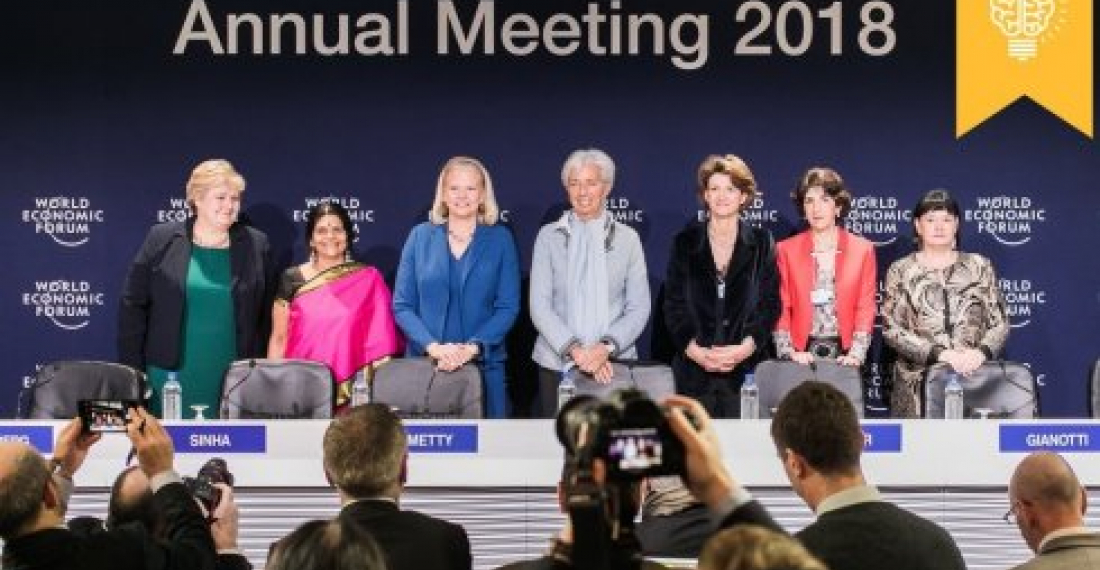Monday Commentary
"There needs to be a Davos in Yerevan, Baku and Tbilisi, and in every town and village in the South Caucasus for ideas to be generated, visions to be formed, and for the momentum for modernisation to gather speed" writes Dennis Sammut in this week's Monday Commentary.
Leaders from the three South Caucasus countries were in Davos last week, participating in the World Economic Forum. President Aliyev of Azerbaijan is a usual attendee - I don't think he missed one in the last decade. Also present this year were the prime ministers of Armenia and Georgia, Karen Karapetyan and Giorgi Kvirikashvili.
Davos is an unusual gathering of world leaders given the overall informality of the proceedings. Plenty of snow means less choreographed protocol. The mingling of the leaders of politics with the heavyweights in business and industry and some of the top thinkers of the moment is also refreshingly unusual. The Davos World Economic Forum is one big buffet of around 400 events - some public, some not - which participants can choose from. It is also an excellent place for networking.
This is the sort of international event that the leaders of the three South Caucasus countries need to engage in as they address the biggest challenges facing them for the next two or three decades, namely how to accelerate the process of modernisation of their economies and societies, and how best to interconnect with the rest of the world and use their geographic positions and geo-political postures to their best advantage.
Modernisation is often a misunderstood term. Some people mistakenly assume that it is simply technological development, or can be expressed through bombastic buildings and construction. Modernising a country requires a much deeper process of restructuring which in turn requires time and commitment. Reforms in three important sectors need to be synchronised - the political institutions, the economy and education. Georgia, Armenia and Azerbaijan emerged from the centralised political institutions, command economy, and ideologised education system that characterised the Soviet Union to newly achieved statehood in 1991. Successive governments in the three countries have since put efforts to modernising all three sectors, with mixed results. None can claim to have succeeded yet, but seeds for success have been sown. The process must now be speeded up.
There are many obstacles on the way - some internal where many vested interests slow down the process of change; some external such as the negative impact from the three larger neighbours: Russia, Turkey and Iran, as they struggle with similar problems, only on a larger scale.
The unresolved conflicts in the region have also taken a heavy toll on all aspects of life over the last three decades. They can still destroy all that has already been achieved, and prevent the process of modernisation from continuing.
But I remain convinced that the potential of the three countries - standing alone, or if they ever manage to get around to it, working together - is far from having been maximised or exhausted. The challenge facing the governments is how to galvanise and unleash this potential.
One hopes that the entrepreneurial spirit of Davos rubs off on the participants from the South Caucasus. Not that in Davos there were solutions to all the problems of the South Caucasus, let alone the world. The biggest lesson from Davos is the value of open and inclusive debate on the most difficult issues, with the possibility that the opinion of even the most mighty being challenged with arguments. There needs to be a Davos in Yerevan, Baku and Tbilisi, and in every town and village in the South Caucasus for ideas to be generated, visions to be formed, and for the momentum for modernisation to gather speed.
source: Dennis Sammut is the Director of LINKS (DAR). The Monday Commentary appears weekly on commonspace.eu
photo: Women co-chaired the leading panels in this year's World Economic Forum held in Davos 23-26 January 2018







